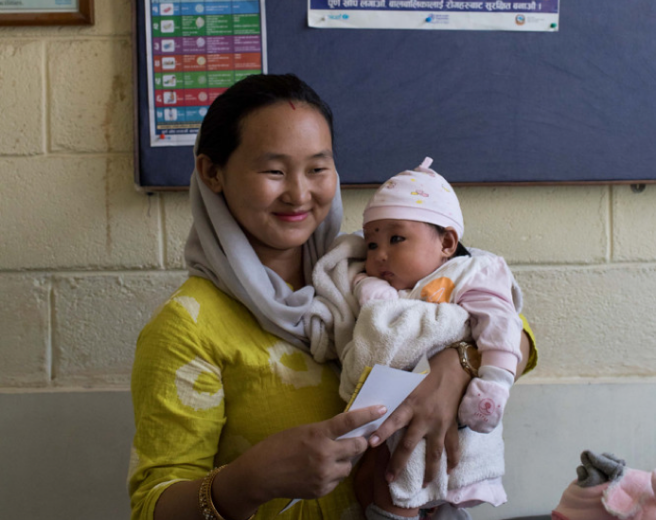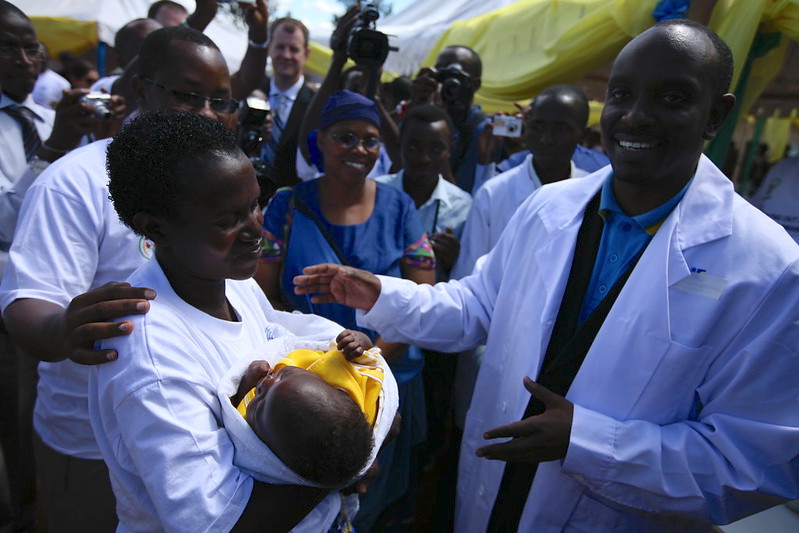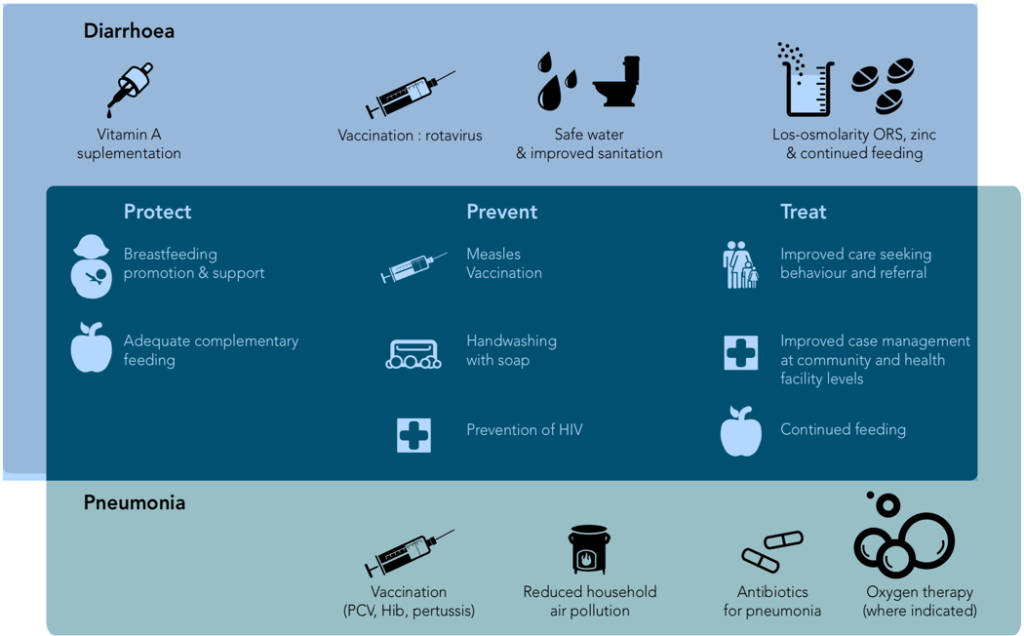
Pneumonia is responsible for more than 800,000 under-5 deaths each year—claiming a child’s life every 39 seconds. Vaccines against pneumococcus, Haemophilus influenzae type b (Hib), pertussis, measles, and influenza are important to help protect children from disease and prevent the lasting health, equity, and socioeconomic effects of pneumonia. This week, country leaders, scientific experts, program and policy officials, and advocates from around the world will meet in Barcelona to elevate pneumonia on national and global health agendas and raise the call for action against this common, serious, preventable cause of child illness and death.
Key Messages
- Pneumonia remains a leading killer of children under 5 worldwide, disproportionately affecting the poorest children with lasting effects
- Immunization is a key part of a comprehensive approach to prevent and control childhood pneumonia, along with interventions like breastfeeding, handwashing, reducing indoor air pollution, and appropriate treatment
- Vaccines that help protect against pneumonia have even broader benefits, like helping to avert potentially catastrophic medical costs that can push families into poverty
- This week’s Global Forum on Childhood Pneumonia calls for global action to set practical, evidence-based plans to end preventable child pneumonia deaths
The Global Forum on Childhood Pneumonia
For three days this week, Barcelona will host hundreds of country leaders, scientific experts, program and policy officials, and advocates as they raise awareness of the global burden of child pneumonia, recognize progress made, and call for commitments to concrete strategies to prevent and control this leading cause of child death. Fighting for Breath: The Global Forum on Childhood Pneumonia serves as a call to action to deliver concrete measures to save children from the disease that claims more than 800,000 young lives each year.
To do this, we need action grounded in evidence—to recognize the importance of a comprehensive approach to pneumonia prevention and control, including the broad, lasting benefits of immunization. Vaccines against causes of pneumonia, like pneumococcal conjugate vaccines (PCV), are vital parts of this strategy and can help protect children from disease and prevent the lasting health, equity, and socioeconomic effects of pneumonia.

Three things to know about the benefits of PCV
1. Pneumonia is the leading infectious cause of death in children under 5 years of age, and disproportionately affects the poorest children across the world, impacting their health, growth, and development. Pneumococcus is a common bacterial cause of pneumonia, which makes PCV a valuable tool to prevent disease, promote health, and fight poverty by preventing medical costs-related impoverishment, interrupting the cycle of infections, and helping to improve growth.
Stay tuned! New evidence on the cost of pneumonia and value of pneumococcal vaccines will be presented at the Global Forum.
2. Use of PCV (among other vaccines) has been shown to reduce health care costs and need for treatments like antibiotics by preventing or reducing the severity of vaccine-preventable disease. This in turn reduces individual health care expenditures, the burden on health systems, and the development of antibiotic and multi-drug resistance.
3. PCV and other vaccines can also help improve health equity, especially when immunization programs reach those who have less access to health services. These populations are often at highest risk for vaccine-preventable diseases and related complications, and include those who are poor, malnourished or immunocompromised, HIV positive, and other marginalized populations and minority groups.
Progress in PCV products and prices
Following on Gavi’s success in achieving lower prices for Hib-containing pentavalent vaccine, another vaccine for childhood pneumonia and meningitis, market-shaping success has also been achieved for PCV. For Gavi-eligible countries, PCV prices have been steadily declining and new multi-dose presentations that help reduce cold chain requirements and price per dose are now available. This is the third straight year that Pfizer has reduced the price of PCV for developing countries, now down to US$2.90.
The PCV product landscape continues to expand—a new pneumococcal conjugate vaccine is here! PNEUMOSIL® is a 10-valent PCV developed by Serum Institute of India, Pvt., Ltd. and PATH, with funding from the Bill & Melinda Gates Foundation. It is now WHO-prequalified and will be available to low- and middle-income countries at a target price of US$2.00 per dose. Three WHO-prequalified PCV products are now available: PNEUMOSIL, Synflorix® (GSK), and Prevenar-13® (Pfizer).
A global call for action to end preventable child pneumonia deaths
PCV and other vaccines are critical parts of our pneumonia prevention and control toolkit, but the best strategy to effectively combat pneumonia is a comprehensive, evidence-based approach that includes a package of interventions. That means national and global commitments to protecting children—especially the most vulnerable—by promoting exclusive breastfeeding and improving nutrition, preventing HIV, reducing indoor air pollution, improving access to clean water and effective sanitation, ensuring early diagnoses and treatment, and fully immunizing every child.

Ending preventable child pneumonia deaths is a challenge of global proportions that demands dogged determination; practical, evidence-based strategies; and a unified voice committed to meeting the Sustainable Development Goals and Integrated Global Action Plan for the Prevention and Control of Pneumonia and Diarrhea targets.
Learn more about pneumonia and the value of immunization in the VoICE Compendium
Follow @Stop_Pneumonia for updates from this week’s Global Forum on Childhood Pneumonia and @voice_evidence to learn more about the broad, lasting benefits of immunization.
Photo credits: Amanda Mustard for Johns Hopkins University and Thomas Rippe
